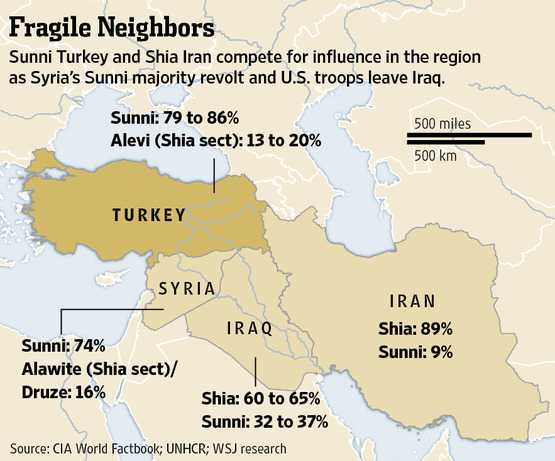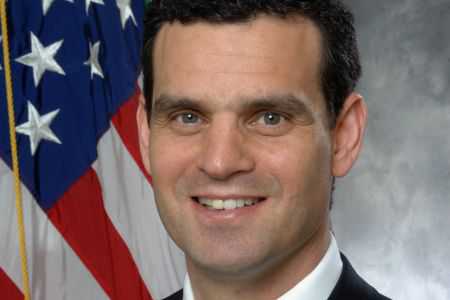While the West adopts a more punitive policy, Turkey has sought to address the Iranian nuclear crisis through political and economic engagement. Are its efforts paying off?
By Aaron Stein for Southeast European Times in Istanbul – 20/06/11
As Iran advances its nuclear programme, questions remain over Turkey’s continuing engagement with the Islamic Republic. [Reuters]
|
A. With the latest signals from Tehran causing renewed alarm, officials in Turkey agree with their Western counterparts that a nuclear Iran would adversely affect regional security. But differences remain over how best to resolve the problem.
A nuclear Iran “would change the balance of power in the region. Turkey would not like to see this happen because that will mean there will be a categorical difference between Iran and Turkey,” said Nuh Yilmaz, director of the Foundation for Political, Economic and Social Research (SETA) in Washington.
At the same time, however, Ankara is eager to maintain regional stability, and hesitant to pursue coercive diplomacy. Turkish officials argue that sanctions will disproportionately impact the Turkish economy, while doing little to prevent Tehran from moving ahead with its nuclear programme – and perhaps even strengthening the position of hardliners in the Iranian regime.
“Turkey’s interest is to engage with Iran to prevent it from obtaining nuclear weapons, while at the same time, defending Iran’s right to pursue a peaceful nuclear programme,” Yilmaz explained, adding that Turkey opposes foreign military intervention that may further unsettle the region.
The United States and many of its Western allies have been working diligently to pressure Iran to give up key components of its nuclear programme that could contribute to a nuclear weapon. A key aspect of this strategy involves the enforcement of US and European unilateral sanctions, which seek to cut off Iran from international financial institutions.
Turkey, by contrast, has opted to gradually tackle the problem through confidence-building negotiations.
Iranian President Mahmoud Ahmedinejad visited Istanbul on May 9th [Reuters]
|
“[The Turks] rely on what they believe to be amicable relations and the AKP government’s policy of befriending its neighbours,” said Henri Barkey, a visiting scholar in the Carnegie Middle East Programme. “Turks believe that economic integration helps overcome political differences.”
Deputy Prime Minister Ali Babacan told reporters in 2010 that Turkish companies were free to “make their own decisions” about whether to abide by US and European unilateral sanctions, according to The Los Angeles Times. As reported by SETimes, many Iranian front companies in Turkey are also active in the procurement of dual-use materials and technology.
“The Turkish government and opinion elites aren’t monolithic, any more than their American counterparts. But in general, Turks seem to be both less convinced that Iran is in fact pursuing a nuclear weapons capability — a judgment in which they are hardly unique — and less threatened by the prospect of a nuclear weapons-capable or nuclear-armed Iran,” said Dr Philipp Bleek, a nonproliferation expert and assistant professor at the Monterey Institute.
When talking about relations, Turkish officials are quick to point out that ties between these two ancient regional powers have been relatively stable since the signing of the Kasr-i Shirin in 1639, which delineated the modern border of Turkey and Iran. Since the end of the Cold War, mutual concerns over the rise of Kurdish nationalism, as well as Turkey’s growing dependence on imported natural gas have solidified the partnership.
But Turkey’s Western partners are taking a different tack. According to Dr Steven Cook, a senior fellow for Middle Eastern Studies at the Council of Foreign Relations, the West has “moved progressively away from a policy of engagement on Iran, concluding that a more punitive policy may have a better chance of changing Iran’s course”.
A key part of that policy is to isolate the Islamic Republic economically in order to raise the cost its nuclear programme, with the hope that these costs will prompt officials to reconsider the merits.
According to Cook, the West would be “less concerned about Turkey’s engagement if there were a sense that Ankara’s outreach to Iran was not open ended. Currently, it seems like it is engagement for engagement sake.”
Ankara fears applying economic sanctions next door could damage its own economy. [Reuters]
|
“Both Bleek and Cook argue that bridge building by itself will not be sufficient to resolve the current diplomatic impasse. They also contend that Ankara does not seem to have a plan beyond negotiations and diplomatic engagement.
In spite of the Turkish and Western efforts to defuse the ongoing diplomatic impasse, Iran has remained defiant, vowing to continue its enrichment programme.
Iran recently announced that it will install 164-machine cascades of advanced centrifuges at a previously hidden enrichment plant in Fordow.
These new centrifuges “would triple [Iran’s] enrichment output of 19.75% low enriched uranium (LEU) by the end of the year,” according to a report by David Albright, Paul Brannan, and Andrea Stricker for the Institute for Science and International Security.
The P5+1 — which includes the US, Germany, France, Britain, Russia and China — has already issued a joint statement condemning Iran for its failure to co-operate fully with the IAEA.
In a development that has further raised concerns, the Iranian website Gerdab.ir — operated by the powerful Iranian Revolutionary Guards Corp — reposted a blog post written by Seyed Ali Pourtabatabaei, a 30-year-old from Qom, who writes a blog called Kheyrazanonline.
The article, entitled “The Day after the First Iranian Nuclear Test is a Normal Day”, discusses the implications of an Iranian nuclear weapons test. It was released shortly before the latest IAEA Director General Report chastising Iran for deflecting questions about the possible military dimensions of its nuclear programme.
This content was commissioned for SETimes.com.






